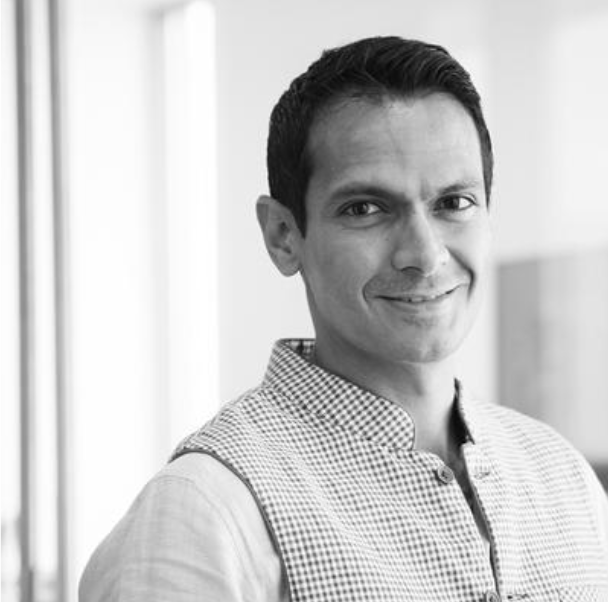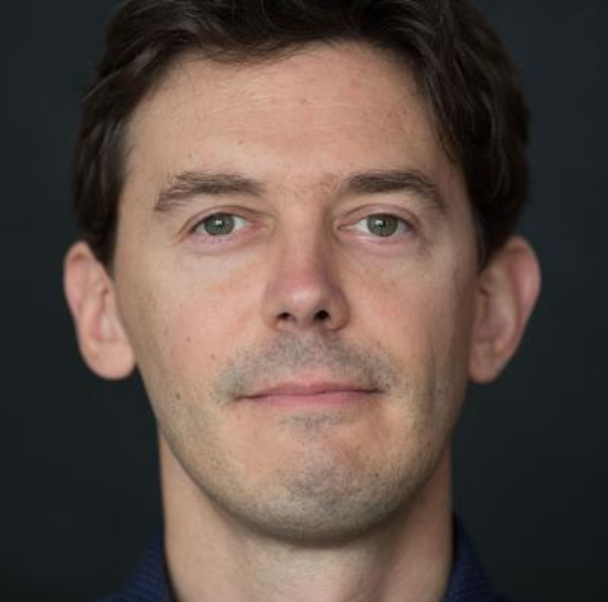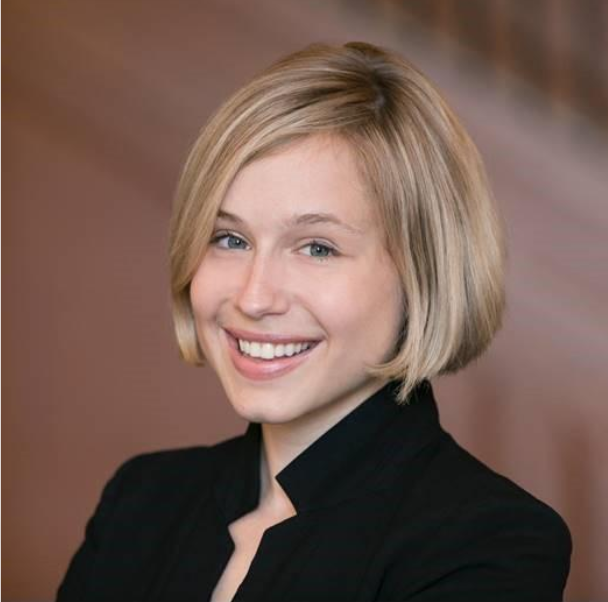2019 Cohort of HGHI Burke Global Health Fellows

Satchit Balsari
MBBS, MPH
Biography:
Dr. Satchit Balsari is Assistant Professor in Emergency Medicine at Harvard Medical School (Beth Israel Deaconess Medical Center), and in Global Health and Population at Harvard Chan. Until March 2017, he served as Chief of the Weill Cornell Global Emergency Medicine Division in New York. Balsari’s research is focused on the application of mobile and cloud-based technologies to protect the health of populations marginalized by disasters and war. His signature initiatives include EMcounter, a portable digital surveillance tool deployed at the world’s largest mass gatherings; Voices, a crowd-sourced, online disaster response analysis tool; and the Hurricane Maria Mortality Study (co-led with Professor Caroline Buckee), that refuted the US government’s low death toll in post-hurricane Puerto Rico.
Balsari directs the India Digital Health Network (IDHN), an interdisciplinary faculty initiative at Harvard’s Lakshmi Mittal South Asia Institute, advancing digital health implementation science in India. IDHN’s white papers have contributed to shaping both the architecture and data protection policy for health data exchange in India.
Dr. Balsari has developed a range of domestic and international courses in global health and mobile technology, taught in India, Sri Lanka, South Africa, and the US. At Harvard, he co-directs the university-wide course, “Entrepreneurial Solutions to Intractable Social Problems,” and “Societal Response to Disasters” at HSPH.
Dr. Balsari is faculty at the Harvard FXB Center for Health and Human Rights. He is recipient of the Dr B.C. Roy National Award presented by the President of India; an Aspen Ideas Scholar, and an Asia 21 Fellow of the Asia Society.
Project Title: Testing the readiness of (big) health data in India for advanced analytics and AI
Burke Fellowship Research Abstract:
Billions are being invested in big health data analytics and AI to develop decision making and prediction tools that aim to improve how, when, where and why we seek care. However, fundamental questions about how health data may be used, collated, anonymized, exchanged, sold, traded or analyzed are yet to be answered. International jurisprudence around these issues is still developing: empiric testing is now required to find the right balance between the desire to leverage vast amounts of data for secondary use, with the need to protect an individual’s privacy and safety.
A series of simultaneous legislative and judicial developments are currently shaping the contours of privacy rights and data protection in India. The country’s newly launched federal health insurance scheme, targeting 500 million people, is expected to help seed India’s digital health ecosystem. My research seeks to test the “AI readiness” of healthcare data in India, in this evolving context. In particular, I will examine state-level health data to: I) examine best practices in data aggregation and anonymization by simulating merger of large public health databases; II) prepare data for differential access (and secondary use) by third-parties; III) examine the adequacy of existing domestic laws and key international guidelines in protecting privacy, promoting transparency and enabling the generation and availability of (big) health data.

Stéphane Verguet
MS, MPP, PhD
Biography:
Stéphane Verguet, MS, MPP, PhD, is an Assistant Professor of Global Health in the Department of Global Health and Population at the Harvard T.H. Chan School of Public Health. He has two main areas of research, both related to health systems, health economics, and priority setting: (1) the incorporation of the dimensions of equity and financial risk protection into the economic evaluation of health policies with the development and application of the “extended cost-effectiveness analysis” (ECEA) methodology; (2) health system analysis and performance, including the study of the interaction and integration of health services delivery platforms and health system modeling. He holds an MPP as well as an MS and PhD in Mechanical Engineering from the University of California at Berkeley, and is a graduate of the Ecole Polytechnique.
Project Title: Developing a distributional population health metric that incorporates health inequalities and illness-related poverty
Burke Fellowship Research Abstract:
Cost-effectiveness analysis (CEA) estimates the aggregate health gains (as disability-adjusted life years, or DALYs, averted) per given expenditure on a single health intervention. However, beyond this partial view, multiple other outcomes of policy should be incorporated in CEA. Financial risk protection (FRP) and improvement of the distribution of population health are two major objectives in the pursuit of universal health coverage (UHC). CEA, and DALYs, should in fact include the distributional impact of health policies per population subgroup (e.g. socioeconomic status) and their FRP benefits (i.e. avoiding impoverishment from illness-related out-of-pocket expenditures). This would enable identifying ‘best buys’ in terms of equity and poverty reduction gains when investing in interventions toward UHC. We propose to create a distributional population health metric that extends the DALY beyond total health to include health inequalities and FRP.

Ashley Whillans
PhD
Biography:
Ashley Whillans, PhD is an Assistant Professor of Business Administration at the Harvard Business School, and a member of the Harvard Kennedy School’s Behavioral Insights Group. She is also a Faculty Affiliate of the Business and Environment Initiative (HBS), the Human Flourishing Program (Public Health), and the Mind Brain and Behavior Interfaculty Initiative. She received her PhD in Social Psychology from the University of British Columbia in November, 2017 and at HBS in July, 2017. During her PhD, her research was funded by the Social Sciences and Humanities Research Council of Canada, and her PhD Dissertation won the CAGS Distinguished Thesis Award for being the single best dissertation in Canada across the fine arts, social sciences, and humanities. In 2015, she was an advisor for the White House Social & Behavioral Sciences Team. In 2016, she co-founded the Department of Behavioral Science in the British Columbia Provincial Government. She is also part of the UN Global Happiness Thematic Council and advises on the well-being strategy of numerous non-profit and for-profit partners. In 2015 and 2018, she was named a Rising Star of Behavioral Science by the International Behavioral Exchange & Behavioral Science and Policy Association. In 2019, she was one of three faculty across Harvard to be named a Burke Family Foundation Global Public Health Fellow. Thus, Prof. Whillans has extensive experience with and has been recognized for her ability to use social science to address large-scale social problems. Broadly, Prof. Whillans’ research focuses on understanding how decisions about time and money impact well-being. Her research has been published in 20+ academic outlets, including Science Advances, Nature Human Behavior, and the Proceedings of the National Academy of Science. Prof. Whillans is passionate about science communication and has written about her research for outlets including the Harvard Business Review, The New York Times, The Washington Post, The LA Times, and The Wall Street Journal. Her first trade-book “Time Smart: How to Reclaim Your Time and Live a Happier Life” will be published by Harvard Business Publishing in September 2020.
Project Title: Alleviating Time Poverty Among the Working Poor
Burke Fellowship Research Abstract:
Poverty entails more than just a scarcity of material resources—it also involves a shortage of time. People living in extreme poverty, particularly those living in developing countries, spend significantly more time on unpaid labor as compared to those who are wealthier. Research suggests that poor girls and women are disproportionately affected. For example, girls and women living in rural India spend an average of 6.1 hours/day on unpaid labor, undermining their ability to attend school, obtain paid work, and invest in the development of their children. In this research, we seek to investigate whether and how relieving time poverty can have psychological, economic, and health benefits for girls and women living in the Jaisalmer region of Rajasthan, India. Of the 672,008 inhabitants of Jaisalmer district, 70% live in rural extremely poor areas that receive very little rainfall. Indeed, Jaisalmer is an arid region of India where water is especially scarce and where water collection involves significant effort for girls and women—making the empirical and practical scope of this research particularly relevant. To test whether alleviating time poverty improves the health, well-being, economic, and educational attainment of girls and women in this area, we are working with a local nonprofit organization OneProsper. Together, we will run an experiment where girls and women will be provided with rainwater collection technology designed to reduce the amount of time spent collecting water. We will collect data on school attendance, crop yield, cognitive and psychological health—including measures of subjective well-being, self-reported stress, physical health, and gender stereotypes. In addition to amassing important data regarding the benefits of rainwater collection technology, the insights generated by this research could inform a new model of aid designed to overcome poverty traps by addressing time poverty. Indeed, in 2016, Melinda Gates wrote a “Gates Note” on this issue and created a video called “Time Poverty: The Gap that No One’s Talking About” highlighting the fact that in every part of the world women spend more time on unpaid work than men. She wrote that “the massive hours that girls spend on household tasks distorts their entire lives.” By combining the rigorous methods of experimental economics with recent insights from social psychology, and by working together with researchers at various local institutions, this project will catalyze interdisciplinary research and collaboration between researchers in the US and in South East Asia. We plan to use the insights from this initial research to apply for larger grants through the NSF and Gates Foundation to understand the long-term positive impacts of reducing the burden of unpaid labor for girls, women, and families living in developing countries.


